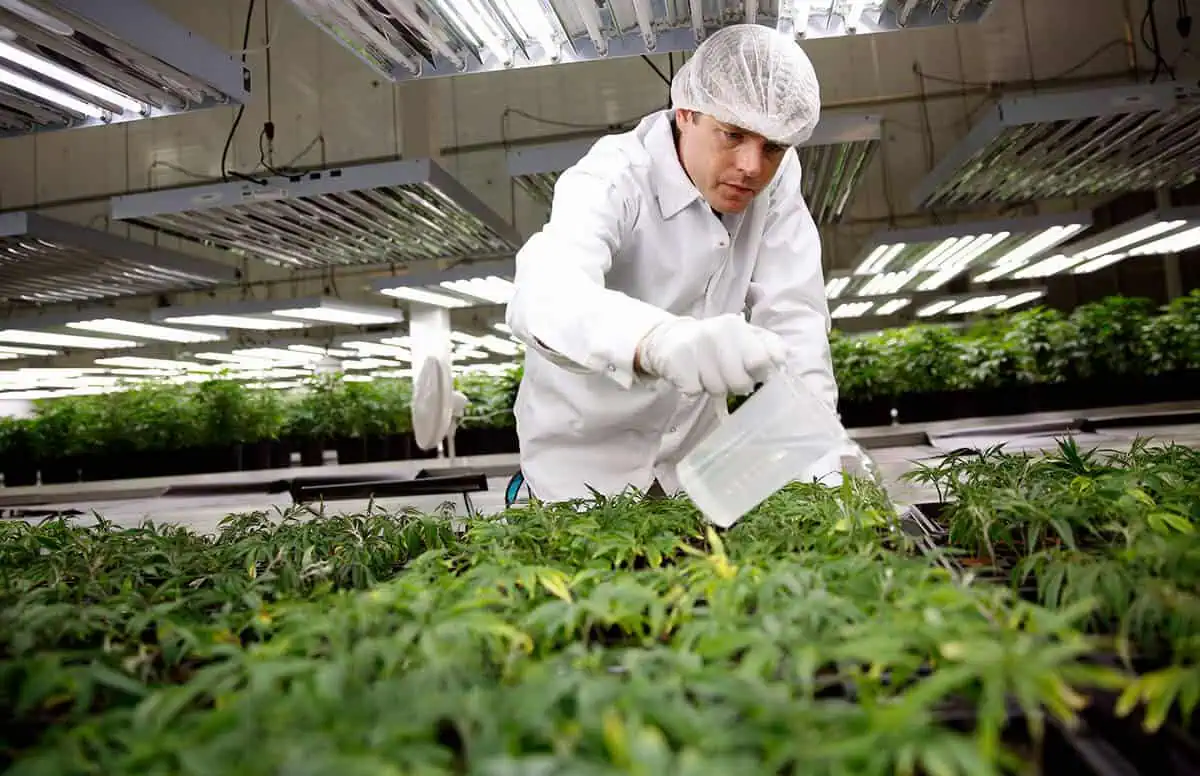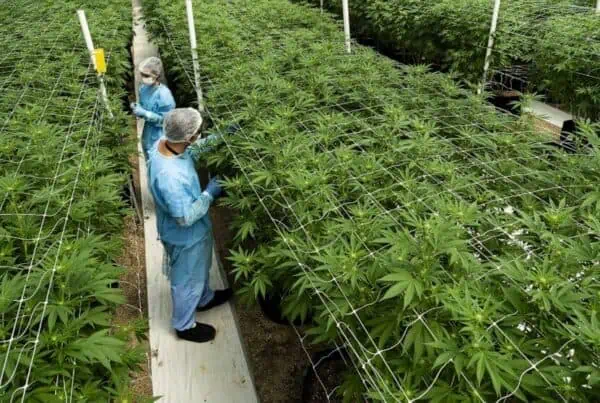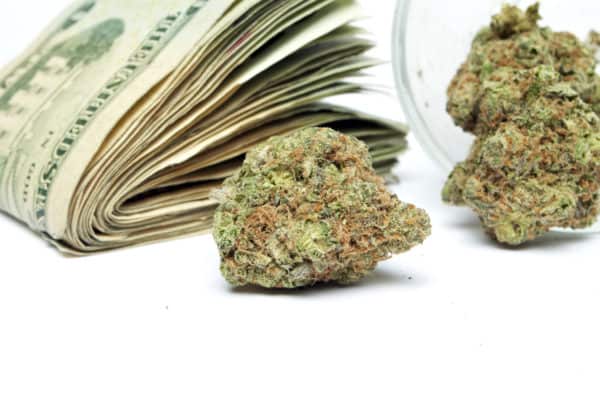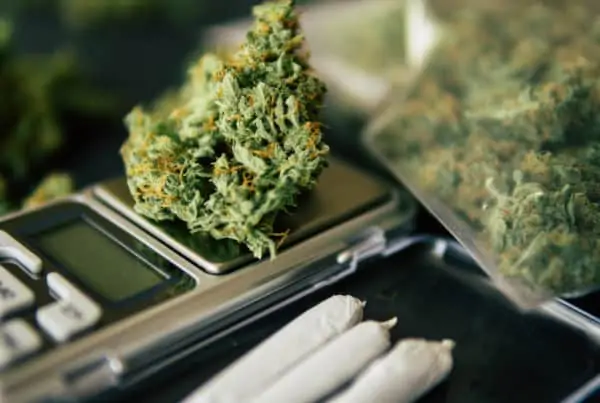TABLE OF CONTENTS
As the cannabis industry continues to grow and evolve, the employment opportunities within it grow and evolve, as well.
While many people wish to start a career in this industry as soon as they reach the mandatory age of 21, other seasoned professionals who’ve been in the job market for years are seeking a change from their current occupations, and the cannabis industry looks like a viable and attractive alternative.
Caregivers positions were once the only role for people wishing to assist those in need of cannabis medicine and therapy, but more recently a new opportunity is available to healthcare professionals: the role of being a cannabis nurse.
Polls conducted among healthcare professionals during recent years indicate that an increasing number of them believe marijuana should be legal. The numbers continue to climb, with some polls indicating 80 percent or more of those in healthcare believing cannabis should be an option available to those who could benefit from its use.
Not surprisingly, those statistics include a lot of nurses. The move toward cannabis-related nursing has reached the point where a national organization for these professionals provides a means to continue pursuing cannabis-related medical options with a national organization that supports these nurses’ beliefs and practices.
The American Cannabis Nurses Association (ACNA) has a clearly defined and displayed mission statement (as any professional organization should): “To advance excellence in cannabis nursing practice through advocacy, collaboration, education, research, and political development.”
Cannabis universities and training programs exist for other cannabis professionals, so it makes perfect sense that nurses have a means to advance their learning with like-minded professionals, as well.
While the ACNA consists largely of registered nurses who received their formal nursing training elsewhere, all medical professionals have an obligation to advance their learning, so this organization is a valuable resource.
National marijuana colleges stay on the pulse of emerging trends in the cannabis space and are beginning to offer coursework in nursing as well. Medical marijuana patients are already well-aware of the relief they receive from cannabis and cannabis products, so national groups and institutions of learning that validate the practice are appreciated and necessary.
The validity of cannabis nursing has reached the point where some in the nursing profession have struck out on their own and launched medical cannabis consulting companies to advance and promote marijuana as a valuable healthcare tool to improve the quality of life for countless people. These types of businesses are only bound to increase in the future as cannabis legalization and access sweeps the country.
Cannabis Nursing Objectives
Official cannabis nursing certification from a national nursing or healthcare organization is a lofty goal because of the currently illegal status of marijuana on the federal level, but eventual accreditation seems almost a certainty.
From the interest nurses currently have for utilizing cannabis to provide relief to patients, they clearly believe in the healing properties of marijuana, or, at the very least, they want to learn more about its potential.
At the time of this writing, while official occupational accreditation is not possible, a nurse can still advance his or her learning and understanding of cannabis through a variety of cannabis training universities and educational programs.
Training Expectations and Goals
Cannabis nursing programs have some common educational goals. Since nurses have a range of questions when they participate in a marijuana education program, the coursework should touch on some of the most simple and basic questions as well as some of the most complex.
The common topics covered during training are likely to include:
- The endocannabinoid system and its cannabinoid receptors. Cannabis and its cannabinoid compounds interact with the human body in complex ways. Cannabinoids like THC and CBD interact with cannabinoid receptors in the brain and throughout the body.
Interaction of cannabis with prescription drugs. - Defining a cannabis overdose, and whether or not people can fatally overdose from marijuana consumption.
- The correct dosages of cannabis as a smokable or edible product, as well as the safest consumption methods and products relating to the inhalation and digestion of cannabis products.
- Marijuana tolerance relating to extended use.
- The legalities and liabilities associated with using medical marijuana.
- The legal history of cannabis in the United States.
- Access to safe and compliantly produced cannabis and cannabis products, including interpreting the labeled cannabinoid potency of cannabis and related products.
- The entourage effect and the unique and complex interactions that occur with cannabis terpenes, cannabinoids, and other compounds when consumed in whole-plant form versus concentrates.
- Full-spectrum extraction practices versus isolate extraction.
- Relevant, state-specific legislation relating to cannabis use and caregiver rights and responsibilities.
- Educating patients about the possible benefits of using medical marijuana for their condition(s).
- Recognizing the differences of both cannabis species and the most effective medical cannabis strains for a range of mental and physical conditions and ailments.
- The differences between hemp and marijuana and the potential medical applications of both cannabidiol (CBD) and tetrahydrocannabinol (THC).
- A breakdown of the various cannabis concentrates and their potency levels.
- An explanation of the various cannabis extraction methods and their differences, ranging from those that utilize volatile solvents to “solvent-less extraction” using ice water.
- Cannabis edibles potency and the delayed onset of effects when consuming these edibles.
Final Thoughts
A variety of educational cannabis training options are available to nurses. Whether they receive their training online or in a classroom, the ever-expanding body of knowledge that now exists for cannabis and its range of medical applications makes cannabis knowledge among nurses more important than ever before. Home nursing and caregiving provides the most opportunities for putting cannabis knowledge and training into practice with patients who suffer from a broad range of conditions.
With marijuana—particularly medical marijuana—becoming legal in the U.S. at an increasingly rapid rate, there is a strong need to not only let needy patients have access, but also to fully understand the benefits that cannabis use provides.
Under marijuana’s current status of being legal in many states but not yet on the national level, healthcare professionals are operating in a gray zone.
“
There are over 300,000 jobs in the cannabis industry. CTU trained me for one of them!

Makes $24.50 @ THC +
With 80 percent of doctors, nurses, and other medical professionals believing marijuana should be legalized, the time has come for sweeping legal reform and the implementation of reasonable national laws governing its use.
Patients need access and advice from their nurses and caregivers about medical options that will address their medications, and for many of those people, the answer is cannabis.

Fred Hernandez
Fred Hernandez is a highly accomplished and versatile writer, boasting an extensive background in the cannabis industry. With an in-depth understanding of various sectors including cultivators, processors, retailers, and brands, Fred's expertise spans across the entire cannabis landscape. As a prominent contributor to CTU, he consistently delivers insightful articles exploring the latest developments, news, and regulations shaping the cannabis industry. Whether it's delving into the intricacies of cannabis products, cannabis strain reviews, or providing comprehensive analyses of cannabis laws, or sharing expert insights on cannabis cultivation techniques, Fred's wealth of knowledge positions him as an invaluable writer and educator for all cannabis-related subjects.












 Jeff was involved in an accident where he endured a traumatic brain injury. He had a week-long stay in ICU where brain surgeons
Jeff was involved in an accident where he endured a traumatic brain injury. He had a week-long stay in ICU where brain surgeons  100% risk free money back guarantee within 48 hours after purchase if student has not completed any of the courses or exams.
100% risk free money back guarantee within 48 hours after purchase if student has not completed any of the courses or exams.